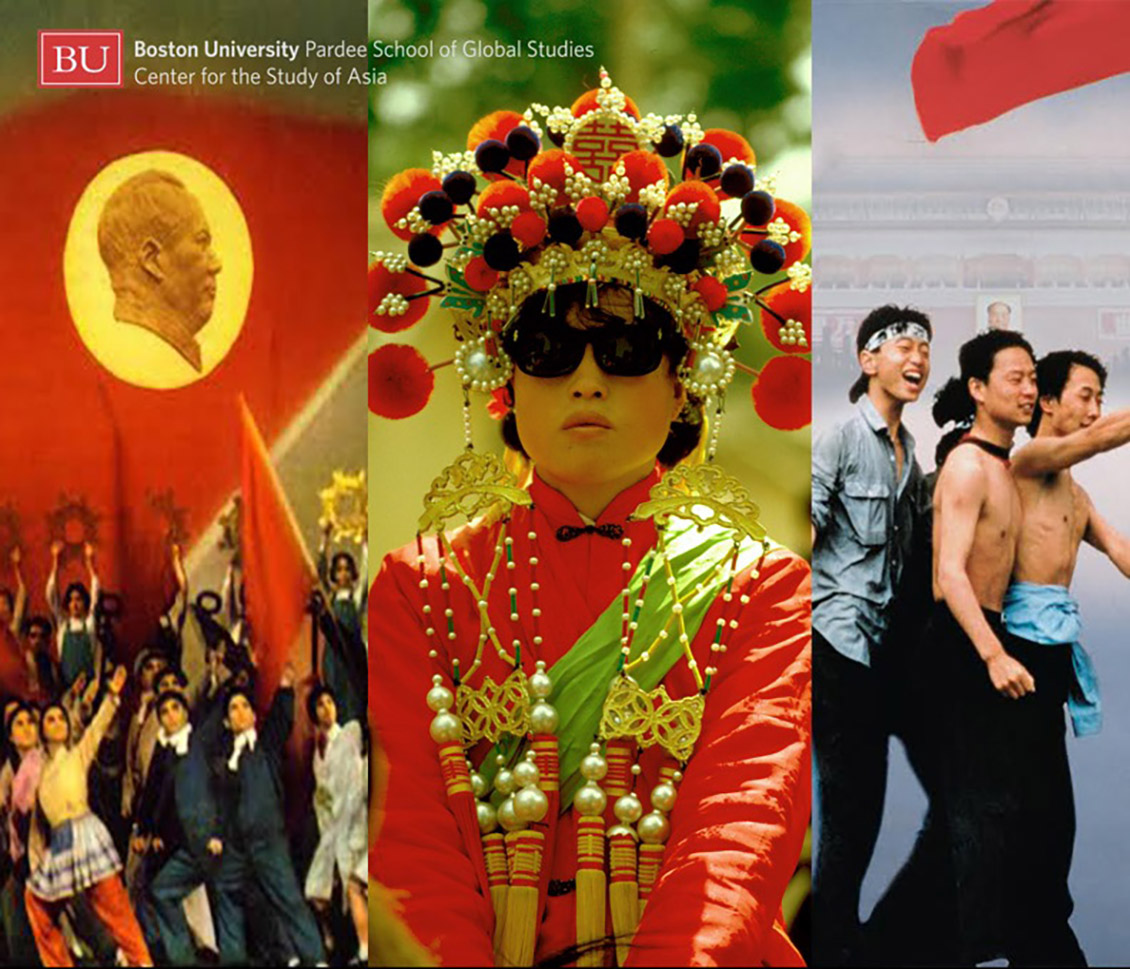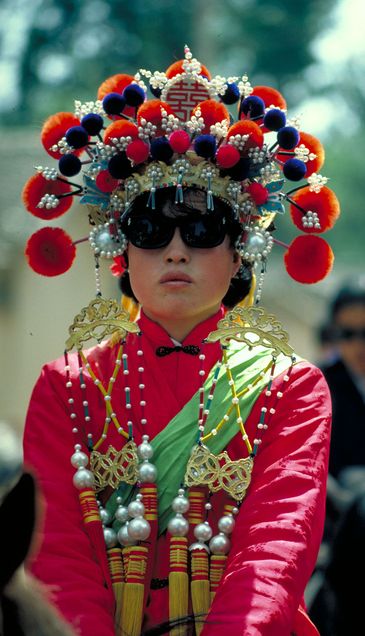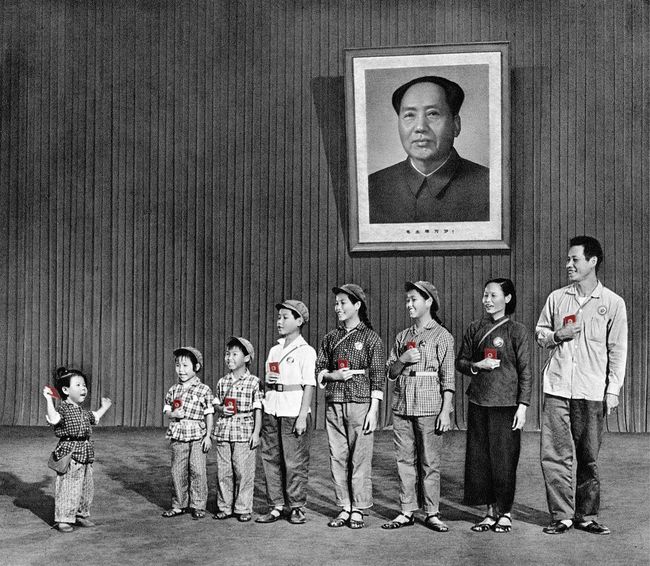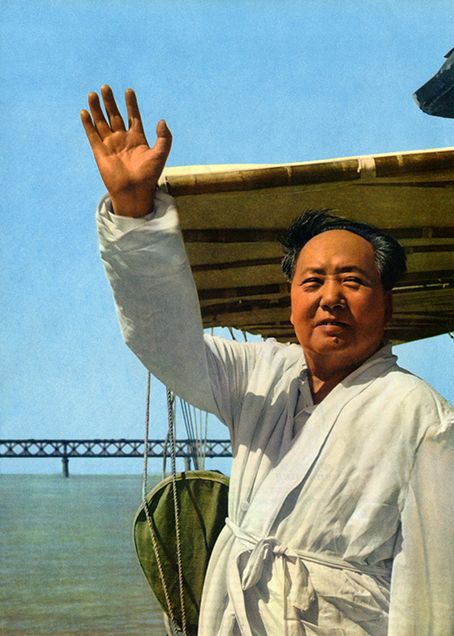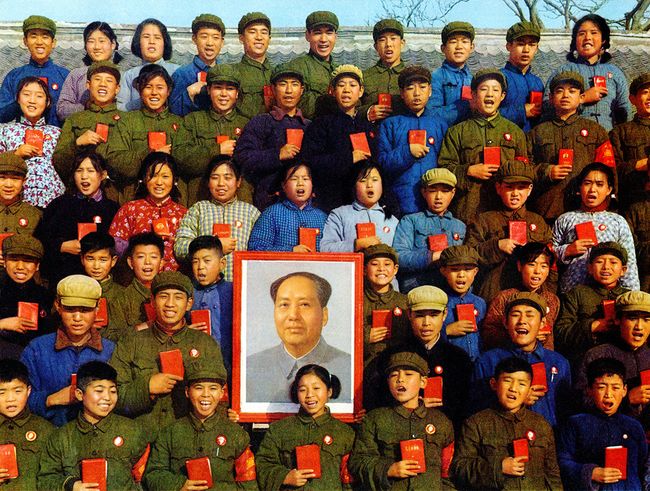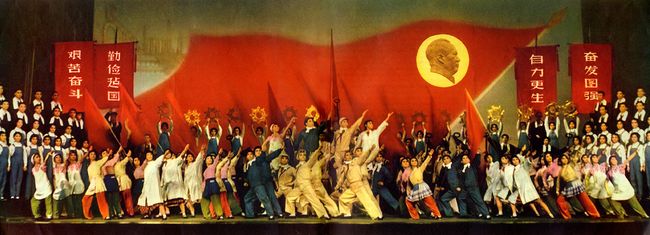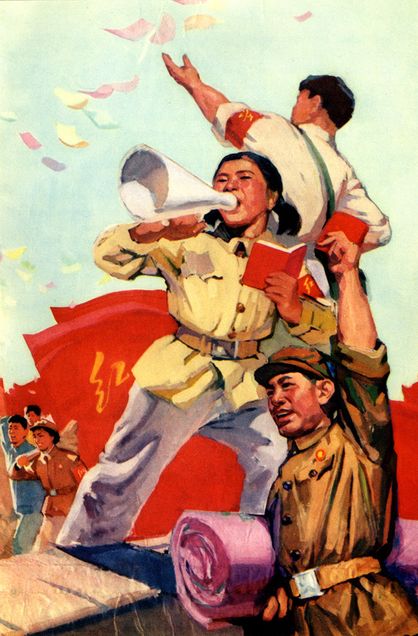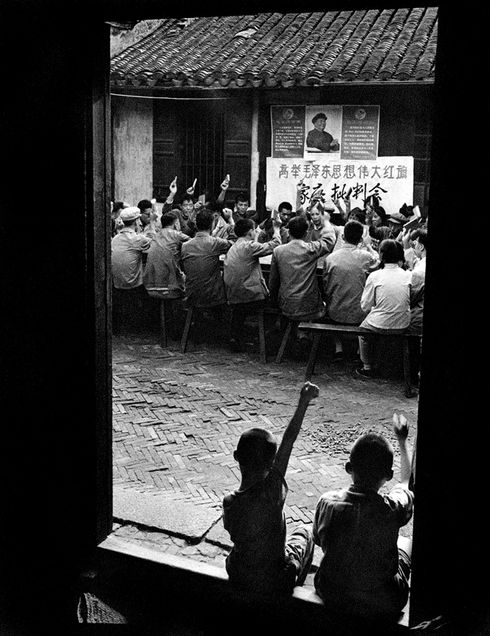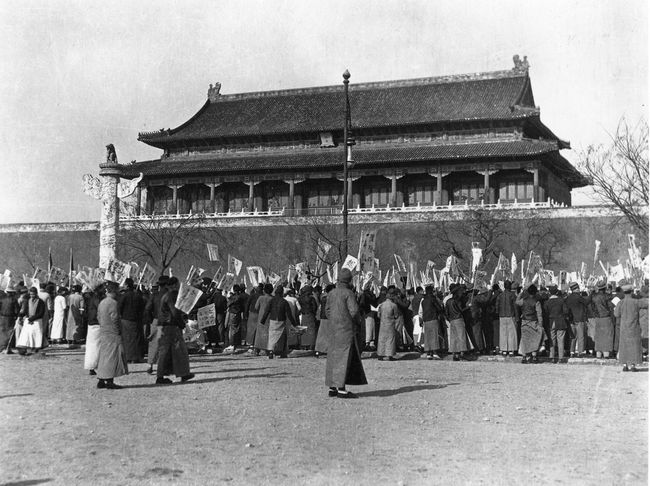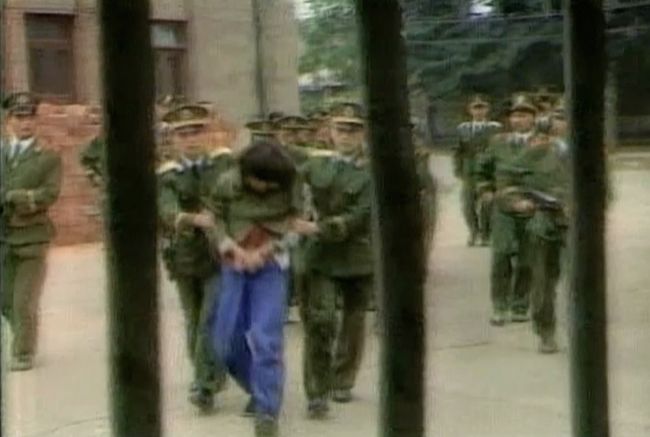The Challenge of Documenting China: The Films of Carma Hinton and Richard Gordon
on April 4, 5, and 6, 2017 at 4 pm in Geddes Language Center Room 533b, 685 Commonwealth Avenue at Boston University
Boston University’s Center for the Study of Asia is pleased to present a series of screenings of exceptional films about China produced by Carma Hinton and Richard Gordon.
Tuesday April 4, 4:00 pm Geddes 533b
Small Happiness and Guomen
Small Happiness (小喜 1984, 58 min.)
Produced and directed by Carma Hinton and Richard Gordon
Synopsis
“To give birth to a boy is considered a big happiness. To give birth to a girl is a small happiness,” remarks an old man from a North China village. “You can’t say it’s no happiness. But there’s a difference. A boy will remain in the household while a girl will be married off.” Small Happiness explores the complex dynamics of continuity and change in the sexual politics of rural China through individual experiences spanning decades. Women tell intimate stories about love and marriage, foot binding, child-bearing, struggles for equal pay, and how the government’s birth control policy affects women’s lives.
Selected Reviews of Small Happiness
Visual Anthropology Review, 28 May, 2014
“A compelling portrait of changing gender relations and family dynamics in a rural community over a 70- or 80-year period, Small Happiness remains one of the most-used ethnographic films about China of the 20th century.”
The New York Times, August 25, 1987
“Small Happiness’ insights are fascinating, and many of the people being interviewed are delightful.… There is a remarkable sense of uncluttered authenticity here.”
Village Voice, November 1986
The film “blends village voices, historical and socio-political essay, and first-person narrative. The mix works; the films steer clear of diaristic self-indulgence on the one hand and ethnographic voyeurism on the other.”
Contemporary Sociology, November 1986
“The filmmakers are able to elicit an intimate, multifaceted view of rural life… A marvelous film that provides pathos, humor, and new insights about the human condition.”
Guomen ( 过门 2003, 16 min.)
Produced and directed by Carma Hinton and Richard Gordon
Synopsis
“If your first child is a girl, people would say, ‘Don’t worry, you missed by only a little bit,” says a father of three daughters who live in rural Anhui province in South China. “If the second child is also a girl, you’re in trouble.” In Guomen, scenes from one of his daughter’s wedding in 2001 are intercut with a 96-year old woman reminiscing about her wedding in 1920. The remarkable similarities of the two weddings highlight the ongoing struggles of rural women in China.
The title of the film, guomen, through the door, is an old Chinese term for marriage. It was used only in reference to the bride. A wedding marked a woman’s passage from one household to another, her transformation from daughter to daughter-in-law.
Wednesday April 5, 4:00 pm Geddes 533b
Morning Sun (八九点钟的太阳,2003, 118 min.)
Produced and directed by Carma Hinton, Geremie Barme,́ Richard Gordon
Synopsis
Morning Sun attempts create an inner history of the Great Proletarian Cultural Revolution (c.1964-1976). It provides a multi-perspective view of a tumultuous period as seen through the eyes of members of the high-school generation that was born around the time of the founding of the People’s Republic of China in 1949. Morning Sun is not a comprehensive or chronological history of the Cultural Revolution as such; nor is it a study of elite politics or of student factionalism. Rather, it offers a cinematic account of experiences and emotions as reflected on by historical actors who themselves were reenacting a history that they had learned and wished to recreate in their own lives. It is also a film about the cultures and convictions of the period—the films and plays, the music and ideas, the rhetoric and ideologies, the education and the aspirations, the frustrations and fantasies, as well as the realities and ardor, that characterized a new revolution that strove to remake revolution itself.
Selected Reviews of Morning Sun
American Historical Association, 2004 John E. O’Connor Film Award
Morning Sun is a compelling and exciting documentary film about the history of the Cultural Revolution in China that demonstrates the inseparable connection of political movements in the twentieth century to issues of spectacle, representation, and cinematic culture itself. Morning Sun narrates the development of revolutionary thinking in China from the mid-1960s to mid-1970s and its link to visual narratives. The film does not just use these images as “illustrations.” Instead, the filmmakers deftly demonstrate the importance and power of images in advancing the revolutions of the twentieth century.
Village Voice, October 22-28, 2004
A “gripping, relentlessly tragic retelling of life in revolutionary times… Morning Sun’s elegiac tone and bottom-up perspectives humanize events that are often described through faceless masses.”
Art New England, February/March 2004
“The film’s directors achieve a cinematic pluralism that ably elucidates the reciprocity between cultural myth making and political ideology. In its presentation of history as a nexus of recorded events, personal recollections, and cultural artifacts, Morning Sun is a suitably manifold rumination on one of the twentieth century’s most momentous upheavals.”
Toronto Star, Nov. 12, 2003
Morning Sun is remarkably measured in its approach, aiming not to condemn the actions of the Red Guard — who, to a person, condemn themselves anyway — but to understand the mechanisms whereby idealism turns into totalitarianism. A valuable contribution not only to the understanding of recent Chinese history, but to the tumult of a globally unsettled age.”
Thursday, April 6, 4:00 pm Geddes 533b
The Gate of Heavenly Peace (天安门, 1995, 187 min.)
Produced and directed by Carma Hinton and Richard Gordon
Synopsis
The Gate of Heavenly Peace is a feature-length documentary about the 1989 protest movement, reflecting the drama, tension, humor, absurdity, heroism, and many tragedies of the six weeks from April to June in 1989. The film reveals how the hard-liners within the government marginalized moderates among the protesters (including students, workers and intellectuals), while the actions of radical protesters undermined moderates in the government. Moderate voices were gradually cowed and then silenced by extremism and emotionalism on both sides.
It is a sobering tale, for faced with the binary opposition between Communists and anti-Communists, there has been little middle ground left for the rational and thoughtful proponents of positive reform in China. By giving these ignored voices their proper place in history, The Gate of Heavenly Peace reveals an ongoing debate in China concerning the importance of personal responsibility and moral integrity, the need, as Vaclav Havel has put it, to “live in the truth.”
Selected Reviews of The Gate of Heavenly Peace
The New York Times, October 14, 1995
“While The Gate of Heavenly Peace has its wrenching moments, it is neither an anti-Communist tract nor a romantic valentine to the movement’s fallen heroes. Above all, it is a hard-headed critical analysis of a youthful protest movement that failed and why.”
The Boston Globe, June 2, 1996:
“In The Gate of Heavenly Peace (the literal translation of the name Tiananmen), the causes, effects and fallout from the six-week protest that led up to the Chinese government’s crackdown on dissidents are detailed with intelligence, grace and toughness. Filmmakers Carma Hinton and Richard Gordon have transformed news into history, and history into art.”
Village Voice, June 4, 1996:
“The most incendiary film of the year…a brilliant documentary… a profound meditation on revolutionary politics that indirectly delivers a withering critique of the ability of American news networks to interpret a complex developing story far beyond its borders.”
The Boston Phoenix, January 5, 1996:
“What’s brilliant and upsetting is that the filmmakers have chosen to commemorate the democracy movement not by simplifying its meaning but by making it almost painfully complex.”
These screenings will be followed by a lecture
History in Images, History in Words:
In Search of Facts
in Documentary Filmmaking
by Carma Hinton
Robinson Professor of Visual Culture and Chinese Studies at George Mason University
on Monday April 10, 4-6 pm, followed by a Reception 6-7 pm
Photonics Center, 9th Floor, 8 St. Mary’s Street, Boston University
 Abstract:
Abstract:
My presentation will focus on the process of documentary filmmaking, especially the many challenges my team and I faced in trying to create engaging filmic narratives that are both factually accurate and encompass multiple perspectives. I will use excerpts from my films as well as out-takes to illustrate the difficulties in determining what information to include and exclude, assess the compromises involved in the choices, and explore the consequences of taking various possible paths. I will also address the different problems that a historian encounters when presenting history in images as opposed to in words: the potential and limitation of each medium and what information each might privilege or obscure. I believe that in this age of “alternative facts” and “parallel universes,” reflections on the challenges in obtaining authenticity and truth and the importance of relentlessly striving to reach this goal, take on particularly urgent meaning.
About the speaker:
Carma Hinton is an art historian and a filmmaker. She received her Ph.D. in Art History from Harvard University and is now Robinson Professor of Visual Culture and Chinese Studies at George Mason University. Together with Richard Gordon, Hinton has directed many documentary films, including Small Happiness, All Under Heaven, To Taste a Hundred Herbs, Abode of Illusion: The Life and Art of Chang Dai-chien, The Gate of Heavenly Peace, and Morning Sun. She has won two Peabody Awards, the American Historical Association’s John E. O’Connor Film Award, the International Critics Prize and the Best Social and Political Documentary at the Banff Television Festival, and a National News & Documentary Emmy, among others. Hinton is currently working on a book about Chinese scrolls depicting the theme of demon quelling. Carma Hinton was born in Beijing. Chinese is her first language and culture.

